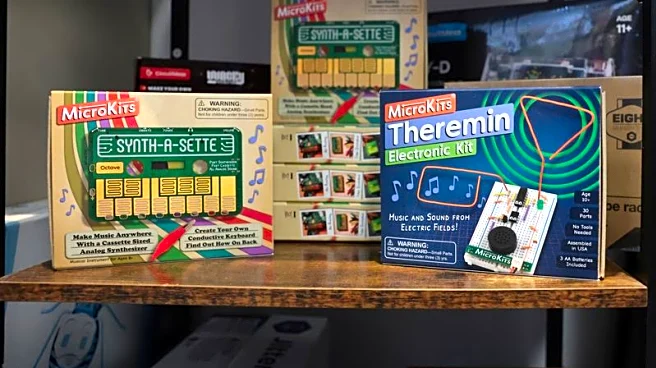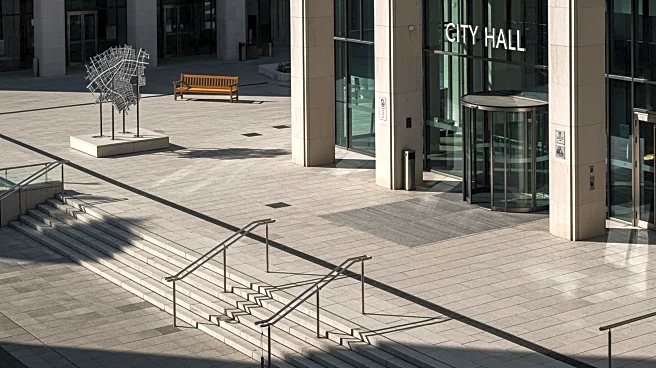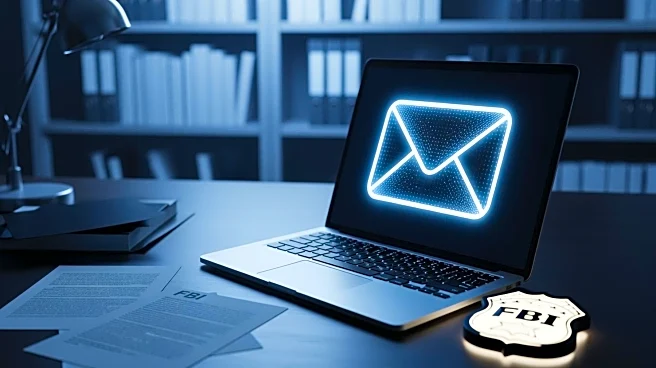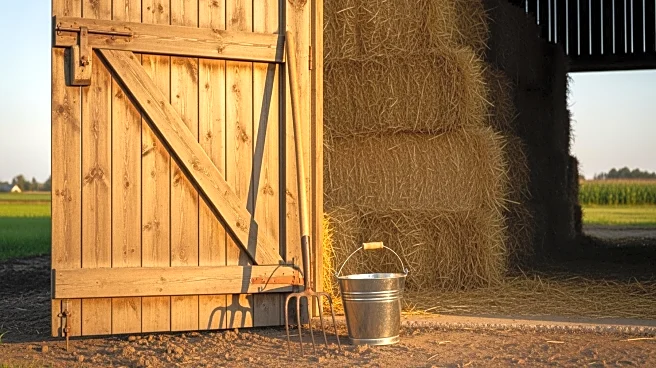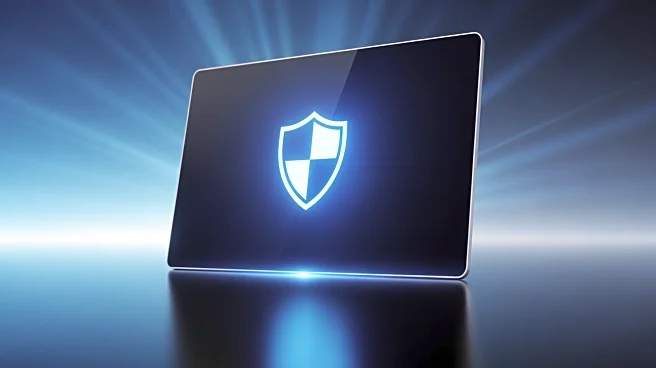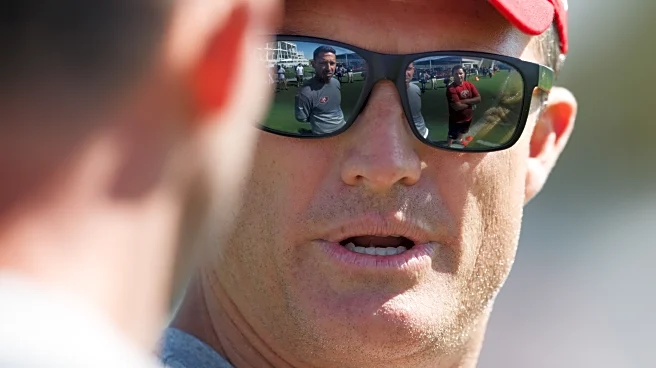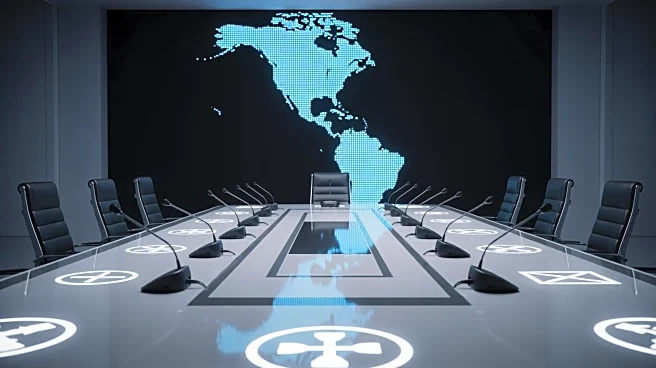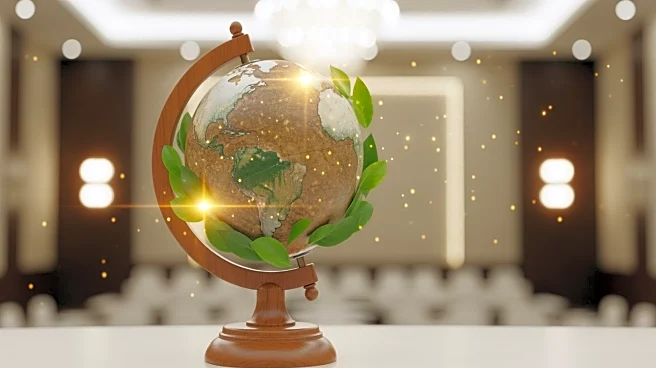By Jan Wolfe
WASHINGTON (Reuters) -Within days of Donald Trump announcing his sweeping "Liberation Day" tariffs in April, Rick Woldenberg was looking for a law firm to help him sue the U.S. president.
"I'm not willing to allow politicians to destroy what we have built up over generations," said Woldenberg, CEO of educational toy company Learning Resources, a family business in the Chicago suburbs founded by his mother.
Woldenberg, along with attorneys at the Akin Gump firm, will be at the U.S. Supreme
Court on Wednesday to attempt to secure a historic victory. The nine justices will be hearing arguments in the case called Learning Resources v. Trump, along with two related cases in which plaintiffs also argue that the Republican president's tariffs are unlawful.
One of the related cases was filed by Oregon and other Democratic-led states. The other was brought by the Liberty Justice Center, a libertarian nonprofit, on behalf of five small businesses, including a wine distributor called V.O.S. Selections and another educational toy company called MicroKits.
While the court typically takes months to issue rulings after hearing arguments, the Trump administration has asked it to act swiftly in this case.
LARGE COMPANIES ON THE SIDELINES
Large U.S. companies have stayed on the sidelines of the tariffs litigation. They did not bring lawsuits and have not filed amicus - or friend-of-the-court - briefs offering their views. Such briefs are commonly used by companies to highlight the importance of cases brought by other litigants.
By contrast, about a dozen small businesses have agreed to serve as plaintiffs in a batch of separate lawsuits brought by nonprofits challenging the tariffs that are still playing out in lower courts, in addition to the businesses involved in the Supreme Court litigation. And another 700 signed onto an amicus brief filed by We Pay The Tariffs, an advocacy group, against Trump's action.
Trump's tariffs have hit small- and medium-sized businesses particularly hard because they "don't have the same flexibility as large companies to manage the impact," said John Horn, a professor at the Olin Business School at Washington University in St. Louis.
Large companies have more cash on hand, Horn said, so they were better able to stock up on inventory before the tariffs took effect. They can also better manage prices and supply chains, Horn added. One reason large companies are not suing to challenge Trump's tariffs is that they are more focused on lobbying efforts, Horn said.
"Large businesses have the flexibility of lobbying the government for exemptions," Horn said. "Small businesses don't have that."
Woldenberg said his legal bills have been in the millions of dollars, but he felt suing was a necessary cost.
"This is certainly not for everyone," Woldenberg said of his legal advocacy. "Hundreds of thousands of businesses in the United States are similarly situated to ours, but to my knowledge I'm the only person in the United States - a country of 300 million people - who has chosen to sue on their own resources."
'CAN'T PLAN AHEAD'
At issue before the Supreme Court on Wednesday are tariffs Trump imposed using the International Emergency Economic Powers Act of 1977, or IEEPA. These tariffs thus far have netted about $100 billion for U.S. coffers. This law was meant for use during national emergencies. Trump deemed the U.S. trade deficit a national emergency even though the United States has run trade deficits every year since 1975.
On April 2, as part of his "Liberation Day" announcement, Trump imposed a baseline tariff of 10% on virtually all countries, with higher tariffs - anywhere from 11% to 50% - on dozens of countries.
The lawsuits before the Supreme Court argue that Congress did not intend for IEEPA to authorize presidents to impose tariffs. Three lower courts have ruled against Trump's tariffs, saying they exceeded his lawful authority under IEEPA.
The IEEPA tariffs are paid by U.S. importers like Learning Resources, which manufactures most of its educational toys in Asia.
In his inauguration speech in January, Trump said tariffs will allow the United States to become a "manufacturing nation once again." Importers have said they want to move manufacturing to the United States, but the parts and services they need are unavailable or prohibitively expensive.
CUTTING BACK
In response to Trump's tariffs, Learning Resources cut back expansion plans to keep more cash on hand, Woldenberg said.
Woldenberg canceled a building project that would have added 600,000 square feet (55,700 square meters) of warehouse and office space for the 500 employees of Learning Resources and a related toy company, hand2mind, that he runs. Woldenberg also abandoned plans to hire about 30 more employees in 2025, and cut back on other expenditures like marketing and training for workers.
When Trump's tariffs hit, "I predicted we'd be smaller and make less money," Woldenberg said. "And both of those things are true."
Woldenberg's frustrations are shared by David Levi, founder of MicroKits, a smaller toy company in Charlottesville, Virginia, that serves as a plaintiff in the parallel case at the Supreme Court.
MicroKits sells electronic instruments, including a synthesizer called the Synth-a-Sette that teaches children about conductivity. Levi imports small electronic parts, mostly from China, then assembles his products in Virginia along with the help of a part-time employee.
Levi said that, when Trump's tariffs on Chinese imports spiked above 100% this spring, he temporarily stopped importing and slowed down production so he would still have work for his part-time employee. Levi reduced the employee's weekly schedule from 25 hours to 15 hours, and assembled thousands of fewer toys than anticipated.
MicroKits, which Levi founded in 2020 after working at large toy companies Hasbro and Mattel, was growing 30% a year and was aiming to hit $1 million in revenue in 2025. Instead, because of the tariffs, revenue will be around $400,000 this year.
Levi said consumer-grade electrical clips he needs for his products are not being manufactured in the United States in any meaningful way. Domestically made clips are designed for aerospace and medical uses and would cost at least 10 times more than consumer-grade ones from Asia, Levi said.
Levi expected to pay tariffs and other taxes when he founded MicroKits, but was not prepared for the constant uncertainty caused by the Trump administration adjusting tariff rates with little public notice.
"In a world where tariffs can go above 100% and then back down again, you're just trying to guess what happens next and can't plan ahead," Levi said.
'OVERWHELMING RESPONSE'
Levi said he came across a webpage where Liberty Justice Center was encouraging businesses to join its lawsuit. The public interest law firm is representing him and four other businesses at no cost.
"After we issued a public call for plaintiffs, we received an overwhelming response from small businesses nationwide," said Jeffrey Schwab, a lawyer at Liberty Justice Center. "Our team spoke with dozens of owners and selected five whose experiences best illustrate the broad harms caused by the tariffs and who were prepared to accept the responsibilities and public attention of litigation."
Victor Schwartz is the founder and president of Manhattan-based wine distributor V.O.S. Selections, one of those five.
Schwartz said he felt a "moral imperative" to challenge Trump's tariffs, which he said have cost his company about $200,000. The tariffs have hit wine importers particularly hard as they contend with inflation, a weakening dollar and declining U.S. alcohol consumption.
"I was shocked that those with much more power and money did not step up," Schwartz said.
(Reporting by Jan Wolfe; Editing by Amy Stevens and Will Dunham)
